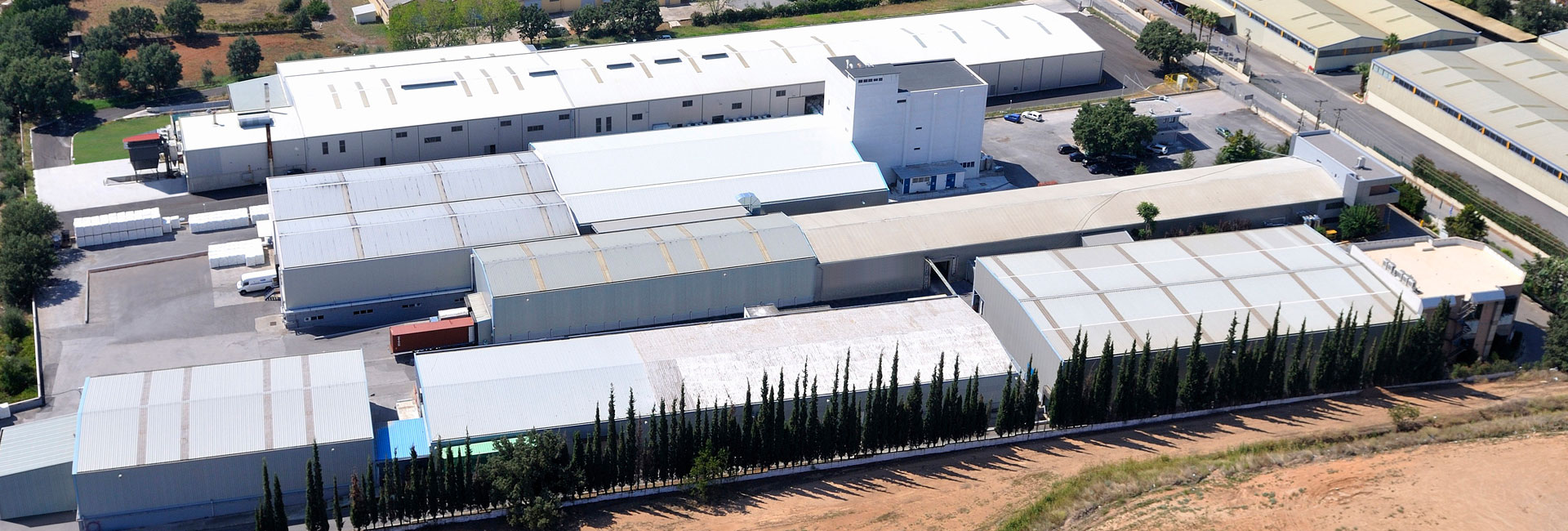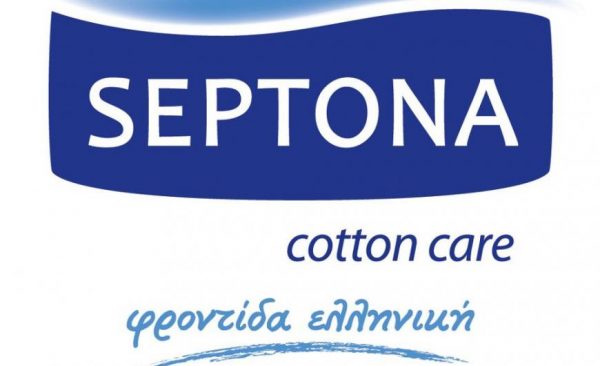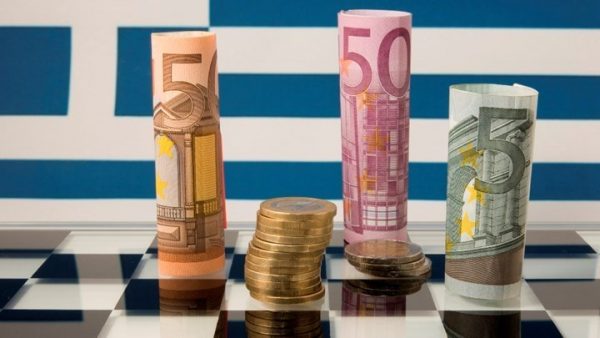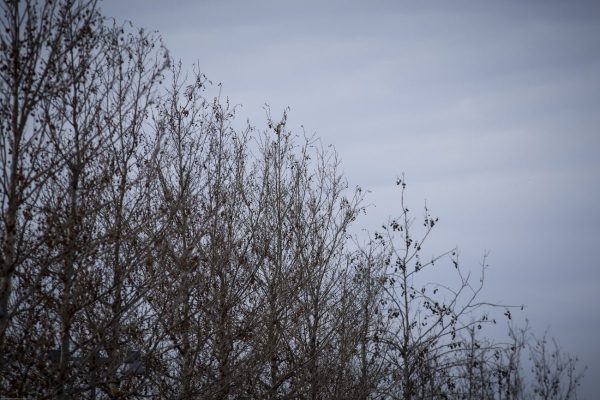
With export sales beig a strong suit, Septona, a dominant player in the personal hygiene sector, expects better returns in the near future, continuing to invest in the full verticalization of its production.
The company, under the management of the president and managing director Ms. Konstantinas Evangeliou, is investing in the creation of a new factory in Oinophyta, the sixth in a row, as it has four others in Greece and one in Bulgaria, with the aim of better managing operating costs.
The high prices of energy and raw materials combined with the decline in consumption due to inflationary pressures, are squeezing the company’s, which this year strengthens its presence in the category of baby wipes, in new categories of cosmetics and liquid soaps.
Exports
The company’s significant exports balance out domestic pressure.
With a vertical production model, 55% of the company’s turnover comes from its presence in international markets, mainly in the private label segment, while its export sales include the Septona brand in 49 of the 70 countries to which it exports its products .
The most important markets are those of England, Germany, France, Austria, Switzerland and the Arab countries. It is also present in markets such as the USA, South America, Russia, China, Australia and Zimbabwe.
At the end of 2021, Septona employed 545 persons (569 in 2020), and has distribution centers in Europe.
Increase in sales decrease in profits
Group sales in the 2021 financial year amounted to 84.3 million euros, compared to 83.2 million in the previous year, an increase of 1.4%, which was entirely driven by the overall increase in Septona sales by 3.5 million euros, as its subsidiary in Bulgaria showed a decrease in sales by 2.1 million euros.
The group’s gross profit in 2021 amounted to 34.4 million euros compared to 33.7 million euros in 2020, an increase of 2.0%.
The group’s earnings before taxes, financial results and depreciation (EBITDA) amounted to 7.9 million euros compared to 12.1 million euros in the previous year, while in the net results after taxes the group showed a profit of 2.47 million .euros, against profits of 6.16 million euros for the 2020 financial year.
Management proposed not to distribute a dividend for the 2021 financial year as well.

An flagship 100% Greek company
Septona is a 100% Greek family company with almost 50 years of presence on the Greek market.
It was founded in 1973 with a multi-shareholder composition with the basic product being the cotton swab. In 1982, a bank employee and a pharmacist, Thomas and Roi Evangeliou, bought 50% of the company, while after eight years the young couple gained full control.
Soon the new owners decided to verticalize and grow the company, producing all parts of the product from the plastic sticks and cotton to the final packaging, while focusing on exports along with expanding into new products.
The change in the production model as well as the favorable situation took off the company’s figures and, since 1997, when the first 100% vertically integrated production unit was implemented in Oinophyta, with the aim of increasing production capacity, the company’s turnover jumped from 3, 3 million euros, to 29.6 million euros in just one decade, i.e. in 2007.
In 2017, the turnover exceeded 66.3 million euros, while already in 2014 the company expanded its activities in the food market, creating two innovative lines of gluten-free products, rice wafers and breakfast cereals.
The extroversion of the business, especially during the crisis years, as well as continued investment, were the factors that helped it to grow further. Between 2010 and 2017, Septona’s investments exceeded 35 million euros.
The role of the pandemic
With new investments in the order of 20 million euros in the two years 2018 – 2019, the pandemic gave a new impetus to the company.
Septona expanded production into wipes and antiseptic products, sales of which soared from March 2020 onwards, with group sales during 2020 rising to 83.2 million euros compared to 69 million euros during 2019.
Today, it is one of the strongest producers of personal care products worldwide with export activity in more than 70 countries and on 5 continents.
Septona milestones
1973: Foundation of the company for the production of cotton swabs.
1983: the Evangeliou family acquires 50% of the business and in 1990 completes the takeover by was completed.
1992: First trade agreement for exports.
1994: Launch of cotton.
1999: Relocation to new offices and production facility. Launch of makeup remover discs.
2000: Launch of baby wipes, wet wipes and makeup remover wipes.
2005: Launch of sanitary napkins.
2010: Launch of underlays.
2011: New production unit in Bulgaria.
2012: Construction of a new 5,000 sq.m. production unit begins at Oinofyta in Viotia. total investment of 7 million euros which was completed in 2014.
2014: Launch of baby range.
2019: New production unit at Oinofyta Viotia for the production of wet wipes.
2020: Transformation of the production process of ear swabs using paper instead of plastic A materials and packaging materials in full harmony with the requirements of environmental legislation.
2021: The construction of a new production unit begins in Oinophyta of Viotia with an area of 15,500 sq.m. total investment of 15 million euros which will be completed within 2022.
Latest News

German Ambassador to Greece Talks Ukraine, Rise of Far Right & Tariffs at Delphi Economic Forum X
Commenting on the political developments in his country, the German Ambassador stressed that it was clear the rapid formation of a new government was imperative, as the expectations across Europe showed.

Athens to Return Confiscated License Plates Ahead of Easter Holiday
Cases involving court orders will also be excluded from this measure.

Servicers: How More Properties Could Enter the Greek Market
Buying or renting a home is out of reach for many in Greece. Servicers propose faster processes and incentives to boost property supply and ease the housing crisis.

Greek Easter 2025: Price Hikes on Lamb, Eggs & Sweets
According to the Greek Consumers’ Institute, hosting an Easter dinner for eight now costs approximately €361.95 — an increase of €11 compared to 2024.

FM Gerapetritis Calls for Unified EU Response to Global Crises at EU Council
"Europe is navigating through unprecedented crises — wars, humanitarian disasters, climate emergencies," he stated.

Holy Week Store Hours in Greece
Retail stores across Greece are now operating on extended holiday hours for Holy Week, following their Sunday opening on April 13. The move aims to accommodate consumers ahead of Easter, but merchants remain cautious amid sluggish market activity.

Green Getaway Ideas for Easter 2025 in Greece
Celebrate Easter 2025 in Greece the sustainable way with eco-farms, car-free islands, and family-friendly getaways rooted in nature and tradition.

Civil Protection Minister Details Summer Firefighting Plans at Delphi Forum
At the 10th Delphi Economic Forum, Minister of Climate Crisis and Civil Protection Yiannis Kefalogiannis discussed Greece's plans for the upcoming fire season.

How Shops and Markets Will Operate During Easter Holy Week
The Easter holiday schedule has been in effect since April 10, with retail stores open Palm Sunday, and most supermarkets also operating to meet consumer demand for Easter shopping

Why Is the French Aircraft Carrier Charles De Gaulle in Piraeus?
Docking in Piraeus after a four-month deployment in the Indo-Pacific region, the admiral of the aircraft carrier the Charles de Gaulle says, "Greece is our best partner in the Mediterranean."










































 Αριθμός Πιστοποίησης
Αριθμός Πιστοποίησης